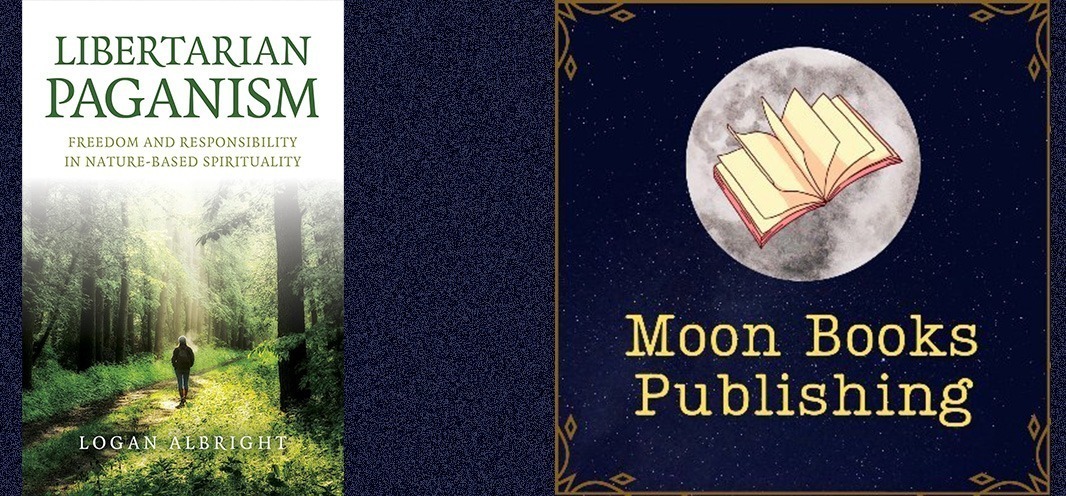
Review by Katrina Rasbold
The author uses only 224 pages to tackle two far-reaching and complex subjects but does so with a distilled finesse that leaves no stone unturned. Choices were made, make no mistake. He carefully curates which topics will best support his argument for a potential marriage between the camps of libertarianism and paganism*, which is no easy task since those two camps are not even remotely on the same battlefield.
And yet, he makes it work and his exploration of defining subjects within each field resonates in a way that feels complete and reasonable. Imagine if you and your academic friend got exceptionally stoned and your friend went down a exceptionally deep theological rabbit hole of, “No, no, no, no…hear me out! What if…?” and then imagine that when you sobered up the next day and reread the bullet points, it all still made perfect sense.
If there were a Venn diagram with the overlapping circles of libertarianism and paganism, this entire book encompasses what would be in the area where the circles overlap. Albright puts forward common goals of the two seemingly unrelated groups as being an interest in individual agency, the importance of consent, embracing of nontraditional attitudes, inclusionism, the questioning of centralized authority, and the dismissal of “what has been” in favor of idealism. It is enough that even the staunchest gatekeeper of either group might say, “OK, I’m listening…” while giving a sideways look.
This book provides a healthy and balanced overview of both libertarianism and paganism and attempts to coordinate interest for those who might be skeptical of either politics or religion (or both) or who are disenchanted with either. He even correlates the concept of “As it harms none” into a solid handshake between the two.
The author identifies as having his own feet planted firmly in both camps and the overall message of the book seems to be, “This ideological marriage works for me, here’s why, and it might also work for others.”
I especially enjoyed his definition of magic as, “…an ever-shrinking category of effects which can be observed by which are not comprehended or recognized by scientific establishment.” The only wince I had in this book was the statement that “there is no higher good than self-determination.” While I whole-heartedly agree with that assessment, I cannot say that I would describe very many of the pagans I have met in the past 40 years as “self-motivated,” so we might have found our biggest hurdle in this theological shotgun wedding.
Libertarian Paganism: Freedom and Responsibility in Nature-Based Spirituality is available from Moon Books at https://www.collectiveinkbooks.com/moon-books/
*Apologies to Oberon Zell for my lack of capitalization of the words “pagan” and “paganism” in this review. I agree with you, OZ, but the author is very specific in his opposing viewpoint and I wanted to honor that for the purpose of this article.